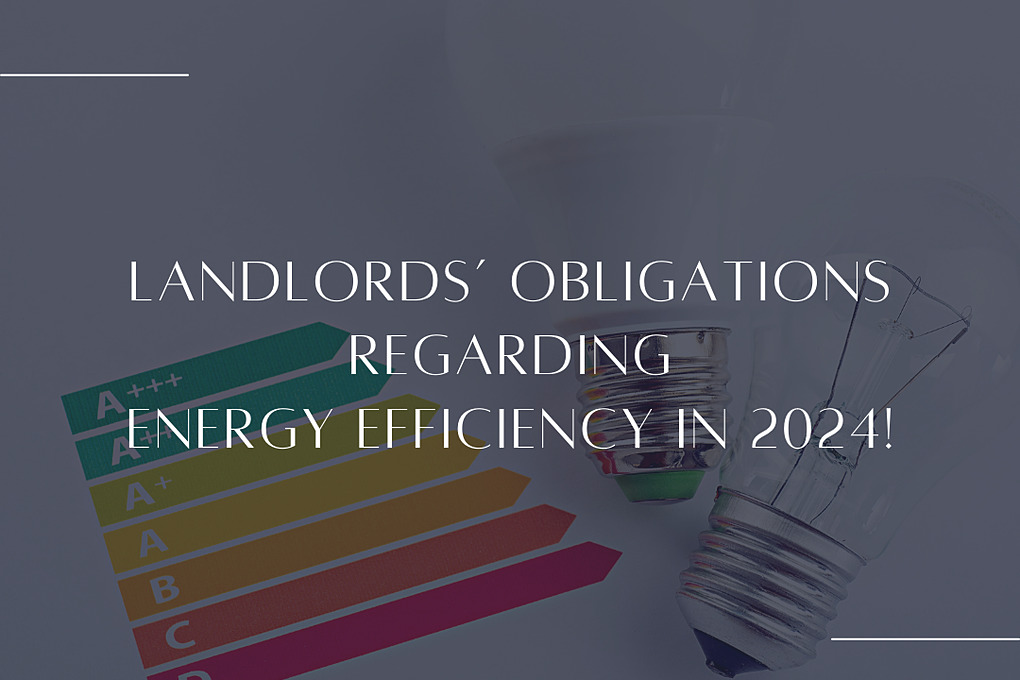Landlords’ Obligations Regarding Energy Efficiency in 2024

- Apr 16th 2024
In recent years, government policies on energy efficiency requirements for privately rented properties have undergone multiple changes.
To provide clarity on landlords' responsibilities concerning energy efficiency, we've put together this helpful guide. It covers everything you need to know to navigate your obligations and plan effectively for the future.
The Significance of Energy Efficiency in Rental Properties
With the climate crisis escalating and energy costs remaining high in the UK, prioritising energy efficiency in rental properties has never been more important. Did you know that homes in the UK contribute to 16% of carbon emissions? Achieving the government's target of net zero greenhouse gas emissions by 2050 requires active participation from landlords in the private rental sector.
Improving energy efficiency isn't just environmentally responsible; it's also a savvy business move. Energy-efficient properties are more attractive to tenants because they offer better insulation, warmth, and comfort. Even though energy prices have slightly decreased in 2024, tenants still prefer properties with high Energy Performance Certificate (EPC) ratings as they help save on energy bills. A top-notch energy efficiency rating can make your rental property stand out, increase demand, and minimise vacancies.
Landlord Responsibilities in 2024
In 2024, landlords play a fundamental role in enhancing the energy efficiency of UK homes. It's crucial for landlords to understand their responsibilities clearly to avoid hefty fines. Penalties for non-compliance with energy efficiency regulations range from £500 to £30,000.
Minimum Energy Efficiency Standards (MEES)
Compliance with energy efficiency regulations starts with understanding and adhering to the Domestic Minimum Energy Efficiency Standard (MEES) Regulations 2018. These regulations apply to all tenancies legally requiring an EPC and mandate that all domestic rental properties must have a minimum EPC rating of E, including existing tenancies.
Energy Performance Certificate (EPC)
Landlords must possess a valid EPC for their rental property and provide tenants with a copy upon move-in. An EPC assessment typically costs between £60 and £120 and must be renewed every ten years or by the expiry date on the certificate.
Improving Properties Rated F or G
Properties rated F or G cannot be legally rented out until improvements are made to raise their rating, unless a valid exemption is obtained.
Exemptions from MEES
Landlords may obtain exemptions from MEES under specific circumstances, such as high costs, 7-year payback tests, completed improvements, lack of suitable insulation, denied consent, devaluation concerns, or being a new landlord with a temporary 6-month exemption.
Changes to MEES
The government has made several changes to MEES over the years, highlighting the importance of staying updated with energy efficiency standards. The proposed 2025 changes, including raising the minimum rating to C and introducing a higher cost cap, were scrapped in 2023 to alleviate pressure on landlords amidst economic challenges. However, future changes remain possible, emphasising the ongoing need for energy efficiency improvements.
Investing in Energy Efficiency
Despite the temporary relief from regulatory changes, investing in energy efficiency remains a wise decision for landlords. Uncertainty persists, especially with potential changes in government and increasing environmental concerns. Energy efficiency improvements not only prepare landlords for future regulations but also attract eco-conscious tenants and enhance property value.
Enhancing Energy Efficiency
If considering energy efficiency upgrades, landlords should consult their EPC recommendations, focusing on fabric improvements like insulation, double or triple-glazed windows, draught proofing, boiler updates, hot water insulation, energy-efficient lighting, and renewable energy sources. These investments not only reduce carbon emissions but also appeal to environmentally conscious tenants, ensuring long-term success and sustainability for rental properties.
At Seths, we guide our landlords to ensure they not only meet compliance, but make necessary improvements that will benefit them and their tenants in the long-term.
Speak with our dedicated investment team by calling us on 0116 266 9977 to find out more about our fully managed property service.








